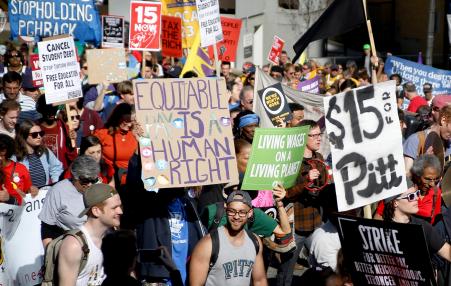Thomas Kochan, Duanyi Yang, Erin L. Kelly, Will Kimball
The Conversation

U.S. workers have not given up on unions-a survey of the workforce found interest in joining unions to be at a four-decade high. But few workers who don’t belong to unions will get to join one, since fewer than 1% will experience an organizing drive.
Spread the word